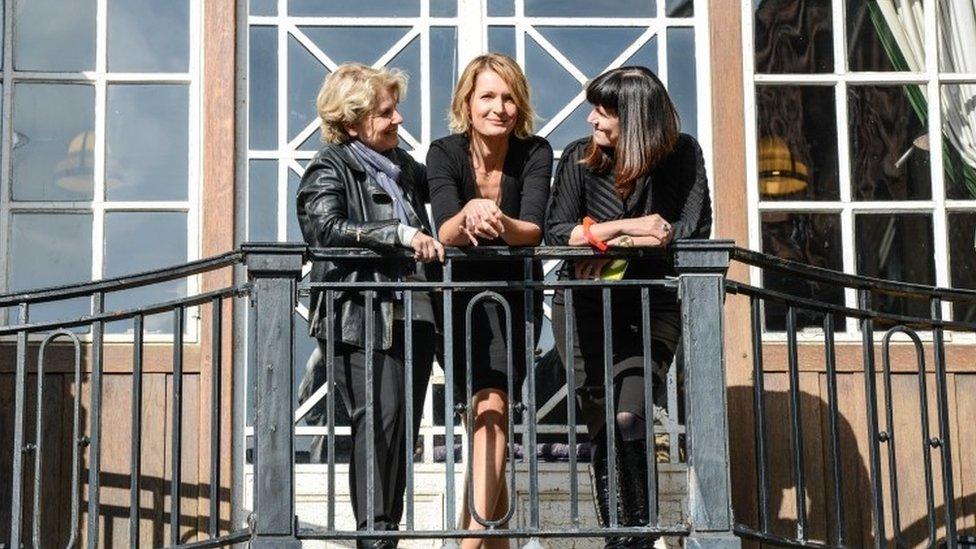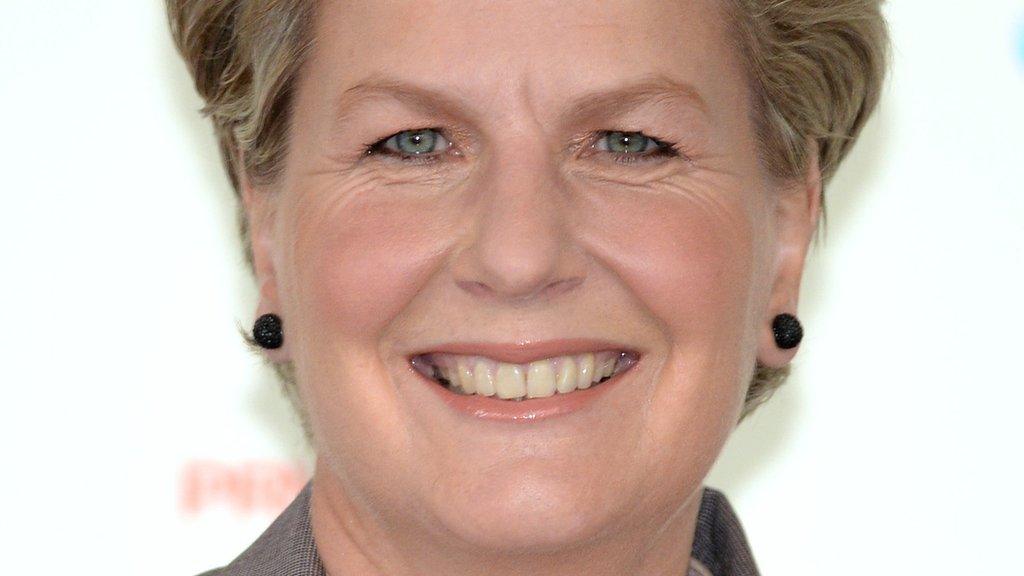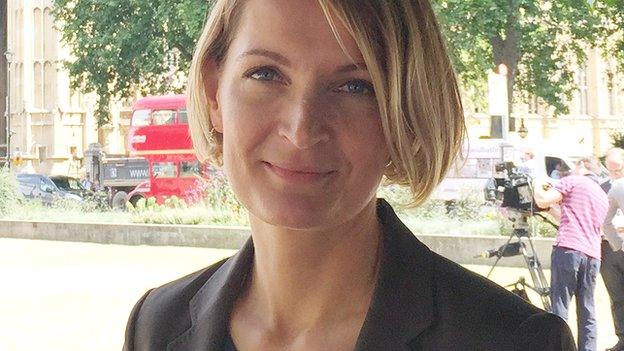Trump win 'eases Women's Equality Party task'
- Published
Women's Equality Party leader Sophie Walker on pay, pensions and childcare equality.
Donald Trump's victory in the US election has in part made the job of the Women's Equality Party easier, its leader Sophie Walker, external has said.
As the party's first conference opened in Manchester, external she told the BBC the president-elect's win was "sad" but meant they could "stop discussing whether sexism actually exists".
The party has six key objectives including equal pay, parenting, education and representation.
Its conference takes place all weekend.
About 1,500 of its 65,000 members and registered supporters are expected to attend speeches and debates.
Asked for her reaction to Mr Trump beating Hillary Clinton to the White House, Ms Walker said: "It was a vote to say misogyny doesn't matter, racism doesn't matter, sexism doesn't matter."
She said Mr Trump claimed to be anti-establishment but "is about as establishment as it gets".
"The idea that this person who lives in a gold-plated penthouse is representing the masses is ludicrous," she added.
The Women's Equality Party was founded in 2015 by author and journalist Catherine Mayer and broadcaster and author Sandi Toksvig.
It wants:
Equal representation for women in politics, business, industry
Equal pay
Equal parenting and care-giving
Equal education
Equal treatment of women in and by the media
And an end to violence against women
In the London Mayoral election in May, the party polled a quarter of a million first or second preference votes and pushed for policies such as a gender pay audit at City Hall., external
Quota myth
Asked why her party was needed when the UK has a female prime minister and Scotland has a woman first minister, Ms Walker said her party was pushing for the needs women identified through campaigns like the What Women Want initiative., external
"We have been hearing loud and clear from thousands of women who are still asking for equal pay, still asking for affordable childcare, still asking for fair pensions, why none of these things appear to be important enough for mainstream Westminster politics," she said.
"Thousands of women say 'I did this survey 20 years ago'. They are still asking for those things and are really angry that they are still asking for those things."
She said an Autumn Statement that invested in infrastructure spending, largely "men's jobs", meant it was "more important than ever" to get women into the construction industry.
And she wanted to "bust this myth that a quota system (for leading jobs in industry and business) means bringing in random people".
"You've got to be able to find all the brilliant women who are capable of doing these very demanding and important jobs, who never get the option," she said.
- Published20 October 2015

- Published30 April 2015

- Published25 July 2015
